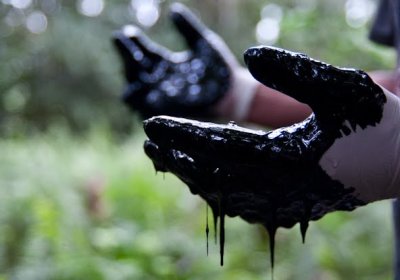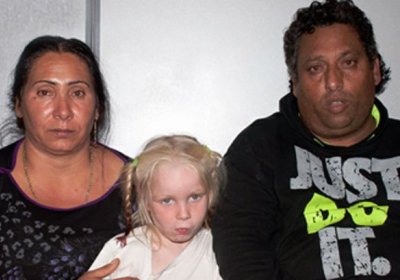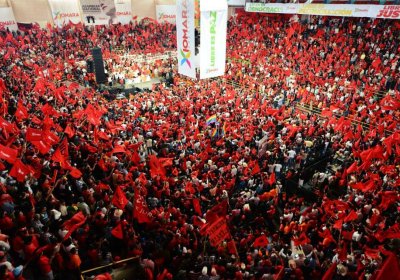The International Criminal Court (ICC) was established to prosecute individuals alleged to have committed war crimes, crimes against humanity and genocide.
From the ICC’s inception, the US objected to the possibility that US nationals could be subject to its jurisdiction.
The administration of former US president George W Bush waged an aggressive campaign to persuade states to sign “Article 98”, or bilateral immunity agreements. Those that signed agreed not to transfer US nationals to the ICC.
Between 2002 and 2009, sanctions were implemented on states that refused to sign.
987
Venezuela's finance minister, Nelson Merentes, presented a draft 2014 budget to the National Assembly on October 22 that devotes more revenue to social services, while predicting continued economic growth and lower inflation.
About 62% of the 551 billion bolivars budget (about $92 billion) would be devoted to social services, compared with 37.7% this year.
The UN General Assembly has voted for the 22nd consecutive year to reject the US embargo, with 188 nations opposed the embargo and three abstentions.
Only the US and Israel voted in favour of the continuation of the embargo, which has been in place since 1960. The UN resolution is non-binding.
On October 29, Cuba's foreign minister Bruno Rodriguez described the embargo as “extraordinary” and “barbaric”.
Canada's colonial past is its present, too, however much Prime Minister Stephen Harper seeks to obfuscate the reality of the history of this land.
Recent events have served as a prime example of how denial of past colonialism helps to perpetuate ongoing colonial relationships. The flash point is the small town of Rexton, New Brunswick, on Canada's east coast.
The growing resistance to fracking — the “hydraulic fracturing” of deep level shale rocks to extract natural gas — promises to reignite the climate movement after the failure of United Nations climate talks in 2009.
A feature of the recent march and blockades at Cuadrilla Resources’ drilling site near Balcombe in West Sussex was the diversity of the people involved, as well as the numbers. Local residents were central to the protests, as they have been at Fylde, near Blackpool, where two Cuadrilla fracking operations led to minor earthquakes.
From Richmond, California to Ecuador and Romania, communities affected by oil giant Chevron’s operations are rising up to demand justice.
Chevron’s response in each case has been consistently irresponsible: Deny any wrongdoing, cover up the extent of corporate malpractice and environmental contamination, and go on the offensive against anyone demanding the company take responsibility for its messes.
But lately, the company has really been on a tear, taking its anti-democratic attacks to bold new heights.
A police raid on a Roma settlement outside the rural town of Farsala in central Greece on October 16 made worldwide headlines.
The raid was nothing unusual but, as Associated Press said on October 22, “one of dozens of raids they have carried out on Roma camps in the past few weeks in a crackdown on drug smuggling and burglary gangs”.
For police, politicians and media in Europe, the link between Roma (or “Gypsies” to use the racist term favoured by the British press) and crime is self-evident.
Anyone in Spain with the slightest understanding of human rights’ law knew that the Grand Chamber (full bench) of the European Court of Human Rights was bound to reject the appeal of the Spanish government over the case of convicted Basque Homeland and Freedom (ETA) prisoner Ines del Rio.
For decades, ETA waged an armed struggle for independence for the Basque Country from the Spanish state. In 2011, it declared a “permanent ceasefire”, ending its armed campaign.
Who was that odd-looking group on bicycles, those white-legged very English-looking people pedalling through the hectic Barcelona traffic? Why were they wearing t-shirts in the colours of the second Spanish Republic (1931-1939), with the words “¡No Pasarán!” embroidered on their sleeves?
Your 14-year-old daughter is dumped on your freezing front lawn in a state of chemically induced incoherence with her shoes off and frost stuck in her hair. She tells you she was raped. You hear her 13-year-old best friend was also raped that same night.
Your daughter is then bullied as a tape of the incident passes around her high school. You wait for the indictments and some semblance of justice, but one of the accused is a football star from one of the area's most prominent and politically connected families.
Dirty Wars: The World is a Battlefield
Jeremy Scahill
Serpent’s Tail, 2013
642 pages
With his first drone strike in Pakistan just a few days after settling into the White House in 2009, the freshly minted Democratic President, Barak Obama, not only authorised the assassination of a handful of probable terrorists but killed up to two dozen innocent civilians.
- Page 1
- Next page





